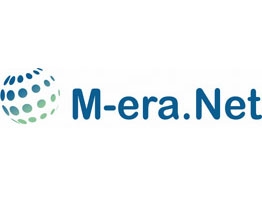
ERA-NET on materials, supporting the circular economy and Sustainable Development Goals
Deadline: Feb 5, 2020
CALL EXPIRED
CALL EXPIRED
Innovation
Single Market
Energy Efficiency
Eco-Innovation
Sustainable Development
Sustainable Transport
Culture and Development
Project Development
Business Development
Maintaining Europe’s position in research related to materials science and engineering requires concentrated action on common European research priorities in view of implementing joint initiatives.
The M-ERA.NET 2 network has successfully targeted the Low Carbon Energy Technologies addressed by the SET Plan. Now the scope should on one hand guarantee some continuation, and on the other hand become more ambitious and underline the commitment of the EU regarding the circular economy and Sustainable Development Goals.
The European Commission has adopted an ambitious new Circular Economy Package to help European businesses and consumers to make the transition to a stronger and more circular economy. Moreover, in 2016, the 17 Sustainable Development Goals (SDGs) of the 2030 Agenda for Sustainable Development came into force. They aim to end poverty, protect the planet, ensure prosperity and tackle climate change. The EU is fully committed to be a frontrunner in implementing the 2030 Agenda and SDGs. Finally, the Commission launched the Battery Alliance initiative in 2017.
Materials research is a relevant field for addressing these overall challenges and for making substantial contributions to achieving the specific objectives.
Global challenges call for co-operation on a global scale to build capacity in science, technology and innovation (STI) at both national and international levels. A strategic and industrially relevant approach is needed that cover the entire research and innovation chain by pooling national research and innovation capacities, thereby mobilising European infrastructure networks as well as promoting education and training in materials research and innovation.
Scope:
The proposed ERA-NET aims at coordinating the research efforts of the participating Member States, Associated States and Regions in the field of materials, continuing the activities started by M-ERA.NET, for materials research and innovation, especially targeting the circular economy and Sustainable Development Goals (such as Goal 7 – “Affordable and clean energy”, by enabling electromobility through sustainable energy storage technology or Goal 9 “Industrial innovation and infrastructure”, by enhancing scientific research and upgrading the technological capabilities of industrial sectors). Proposals should pool the necessary financial resources from participating national or regional research programmes by implementing a joint transnational call for proposals (resulting mainly in grants to third parties) with EU co-funding to fund multinational innovative research initiatives in this domain, including support to the large scale research initiative on future battery technologies launched under the H2020-LC-BAT-2019-2020 Call[1].
Proposers are also requested to implement other joint activities and, additional joint calls without EU co-funding. The proposal should demonstrate that these additional joint calls exclude any overlaps with related on-going actions co-funded by the EU under NMBP.
Proposals should demonstrate the expected impact on national and transnational programmes as well as the leverage effect on European research and competitiveness, and should plan the development of key indicators for supporting this.
Participation of legal entities from third countries, and/or regions including those not automatically eligible for funding in accordance with General Annex A is encouraged in the joint call as well as in other joint activities including additional joint calls without EU co-funding. Participants from countries not listed in General Annex A are eligible for EU funding under this topic and may request a Union contribution (on the basis of the ERA-NET unit cost) only for the coordination costs of additional activities.
The Commission considers that proposals requesting a contribution from the EU of EUR 15 million would allow this specific challenge to be addressed appropriately. Nonetheless, this does not preclude submission and selection of proposals requesting other amounts. EUR 5 million of the requested contribution from the EU should be used as support to transnational projects, co-funded by the Commission, on future battery technologies, fostering synergy between European, national and regional initiatives and promoting broader partnerships between the European stakeholders in future battery technologies.
Expected Impact:
- synergies with international, national and regional programmes that support research and innovation;
- synergies but no overlap with the topics of Horizon 2020 and with related European Partnership initiatives and be open to adapt to future coming initiatives of Horizon Europe;
- leverage of national, regional and European funding;
- contribution to meeting Global Challenges through Better Governance: International Co-operation in Science, Technology and Innovation;
- relevant contribution to the SDGs, including sustainable battery based energy storage technology;
- relevant contribution towards a circular economy.
Public link: Only for registered users
 M-ERA.NET
M-ERA.NET


Please Log In to See This Section